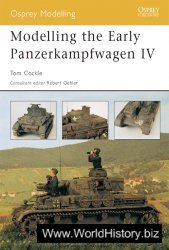Averroes’ contributions to natural philosophy are many, as he distilled much of the anterior tradition into his commentaries and produced critical assessments of several key issues. For the purposes of this survey, it is sufficient to concentrate on a single aspect of one key area of study - Averroes’ views on psychology and specifically the intellect - as long as it is understood that similarly intricate stories could be told concerning his explorations of many of the contested issues of Aristotelian physics (see now Glasner 2009).
In keeping with Averroes’ Aristotelian project, the Commentator’s cognitive psychology builds on the notion of abstraction (tajrld), taking on form without the matter. Instead of the higher cognitive functions opening up to a more exalted supernal realm, as al-KindI’s school had intimated, what Averroes envisions is an unfolding of the essential and formal properties of the corporeal reality all about us. This distaste for mystical leanings of any kind marks Averroes out in the post-Avicennian phase of Arabic philosophy. At the same time, Averroes’ commitment to the abstractionist view makes acute for him all the associated problems. For instance, Averroes considered the vexed question (since antiquity) of how the sensible form of a thing carries in a medium. Averroes’ answer was to evoke the notion of ‘‘spiritual intentions,” a mechanism that seems to have involved some kind of subtle matter on the lines of either Galenic spirits or the rUh of Islamic speculative theology.
Averroes’ greatest efforts were expended in clarifying the ontological status and epistemological role of the material intellect, a topic on which Averroes changed his mind several times during his career (Davidson 1992; Ivry 1997; Taylor 2009). In the early Compendium, the material intellect is tied to the imaginative faculty, making of it a truly individual phenomenon, but also a perishable one. In the Explication, and in a separate small treatise discussing the nature of human conjunction (ittisal) with the separate Agent Intellect, Averroes comes closest to hitting upon a formulation that would guarantee personal immortality: here, the individual material intellect develops through its contact with the active (still separate, still impersonal) intellectual principle. Yet it is the position spelled out in the Commentary, extant only in the Latin except for some fragments, for which Averroes became notorious. Now, both the Agent and the Material Intellects are separate and eternal principles in which humans come to share temporarily but which enjoy a life of their own; individual immortality no longer figures in any philosophical conception of human life; while the cogitative faculty is entrusted with the task of providing the link between individual intentions and the intellectual acts that are of a truly universal character. Averroes seems to have been moved to this uniquely austere view of intellection through a hard-nosed decision to follow through on some general epistemological and ontological commitments. He acknowledges that the whole question is exceedingly difficult, and indicates that without Aristotle it might never have found its resolution (Commentary on De anima, bk. 3, comm. 14).




 World History
World History









